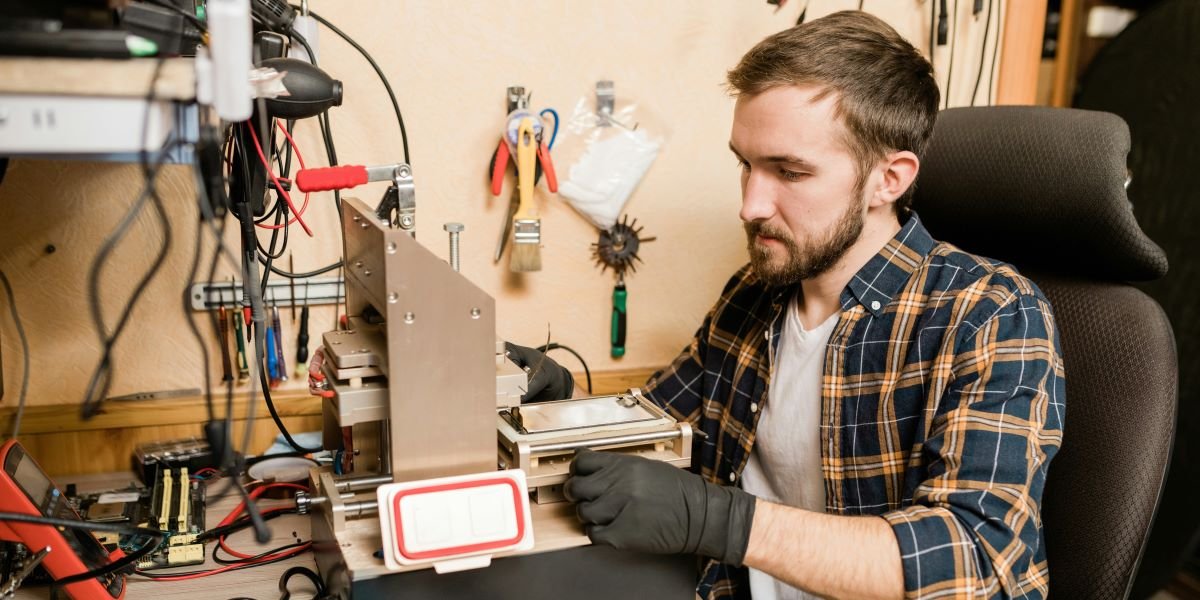The rollout of 5G technology is one of the most talked-about developments in the tech world today, and for good reason. As this next-generation wireless technology becomes more widespread, its potential to revolutionize industries is becoming clearer, particularly in the realm of the Internet of Things (IoT). Industries such as manufacturing, healthcare, and agriculture are poised to benefit significantly from the integration of 5G and IoT, as businesses look for ways to enhance operations and improve efficiency. But what exactly does this integration mean for these industries, and how will it shape the future?
Why Is 5G Important for IoT?
To understand the impact of 5G on IoT, it’s important to first grasp what makes 5G different from previous generations of wireless technology. Unlike 4G, which has limitations in speed, latency, and connectivity, 5G is designed to provide ultra-fast speeds, minimal latency, and the ability to connect a massive number of devices simultaneously. This makes 5G a game-changer for IoT, where large networks of connected devices need to communicate quickly and reliably.
For businesses, this means that IoT devices can operate more efficiently, with faster data transfer and more reliable connections. In industries like manufacturing, where time-sensitive operations are critical, the reduced latency offered by 5G can lead to significant improvements in production processes. Machines and sensors can communicate in real-time, enabling faster decision-making and more precise control over operations.
Moreover, the increased bandwidth of 5G allows for the connection of many more IoT devices within a single network. This is particularly important for industries like agriculture, where a vast number of sensors and devices need to monitor conditions across large areas. With 5G, farmers can collect and analyze data from these devices more quickly, leading to better management of resources and more effective farming practices.
How Will 5G and IoT Transform Key Industries?
The integration of 5G and IoT is set to transform several key industries by enhancing how they operate and interact with technology. In manufacturing, the combination of 5G and IoT can lead to the development of smart factories, where machines, robots, and sensors are interconnected and can make autonomous decisions. This can improve production efficiency, reduce downtime, and allow for more flexible manufacturing processes.
In healthcare, 5G and IoT can revolutionize patient care and medical services. Wearable devices that monitor vital signs can send data to healthcare providers in real-time, allowing for more accurate and timely diagnoses. Remote surgeries, powered by 5G’s low latency, could become more common, enabling specialists to perform operations from different locations. Additionally, the ability to connect more devices reliably can improve hospital management systems, making everything from patient monitoring to inventory management more efficient.
Agriculture is another industry where 5G and IoT integration will have a significant impact. Smart farming practices, which rely on data from IoT devices to optimize crop yields and manage resources, will benefit greatly from 5G. Farmers can use drones to monitor crop health, automate irrigation systems, and even predict weather patterns more accurately. This not only increases productivity but also helps in the sustainable use of resources.
What Challenges Need to Be Addressed?
While the potential benefits of 5G and IoT integration are clear, there are still challenges that need to be addressed to fully realize these advantages. One of the main concerns is the security of IoT devices. As more devices become connected to the internet, the risk of cyberattacks increases. Ensuring that these devices are secure and that data is protected is crucial for businesses that rely on IoT technology.
Another challenge is the cost of implementing 5G and IoT solutions. For many businesses, especially small and medium-sized enterprises, the investment required to upgrade infrastructure and adopt new technologies can be significant. However, as 5G becomes more widespread and the cost of IoT devices decreases, these technologies are expected to become more accessible to a broader range of businesses.
Additionally, the integration of 5G and IoT requires careful planning and management. Businesses need to ensure that their networks are capable of handling the increased data traffic and that their systems are optimized for real-time communication. This may involve upgrading existing infrastructure or adopting new technologies to support the higher demands of 5G.
The integration of 5G and IoT is poised to bring about significant changes in industries like manufacturing, healthcare, and agriculture. With faster speeds, lower latency, and the ability to connect more devices, 5G will enable businesses to operate more efficiently and make better use of IoT technology. However, there are challenges that need to be addressed, including security concerns and the cost of implementation. As these challenges are overcome, the benefits of 5G and IoT integration will become increasingly apparent, paving the way for more innovative and efficient business practices in the future.










